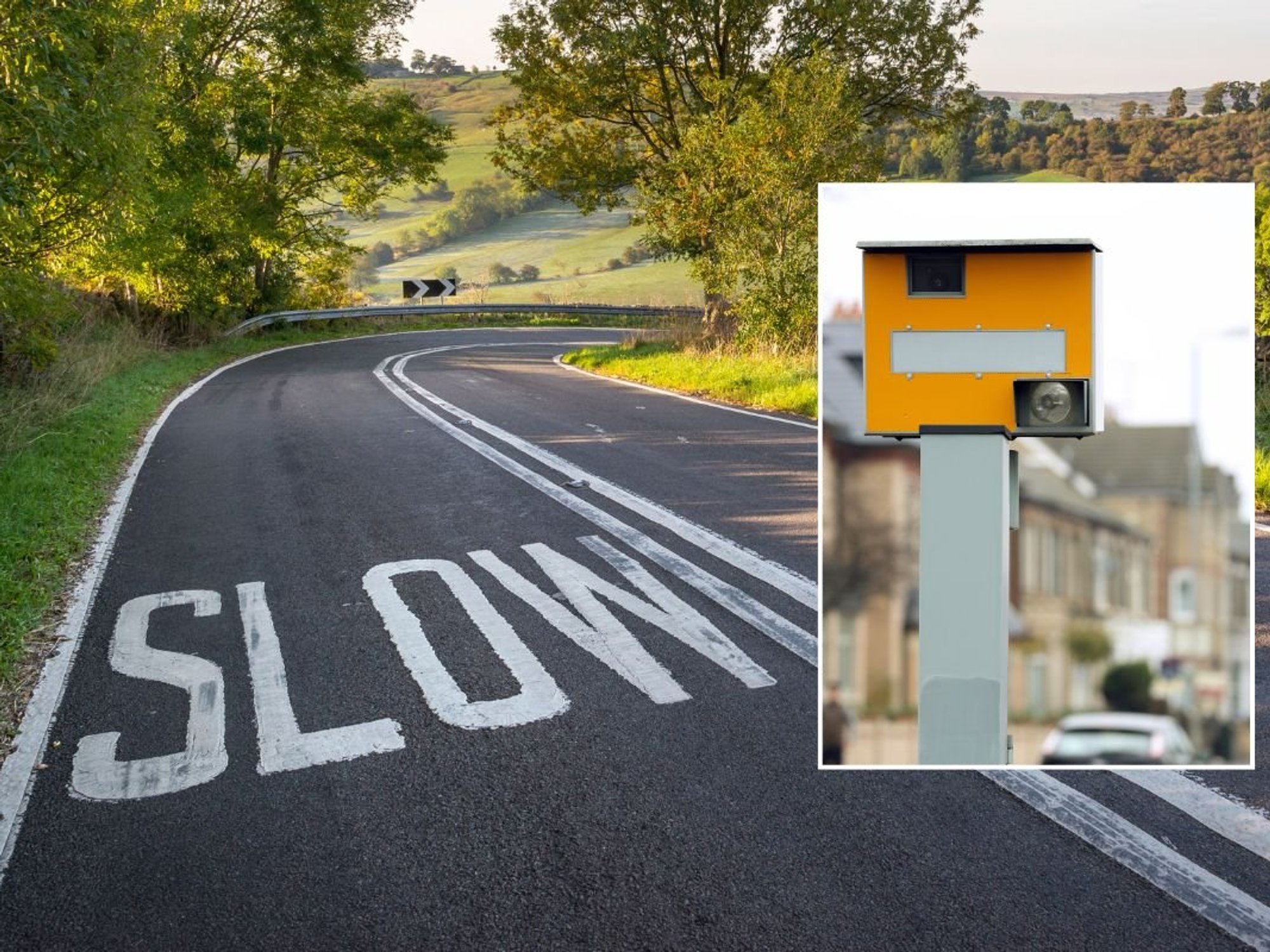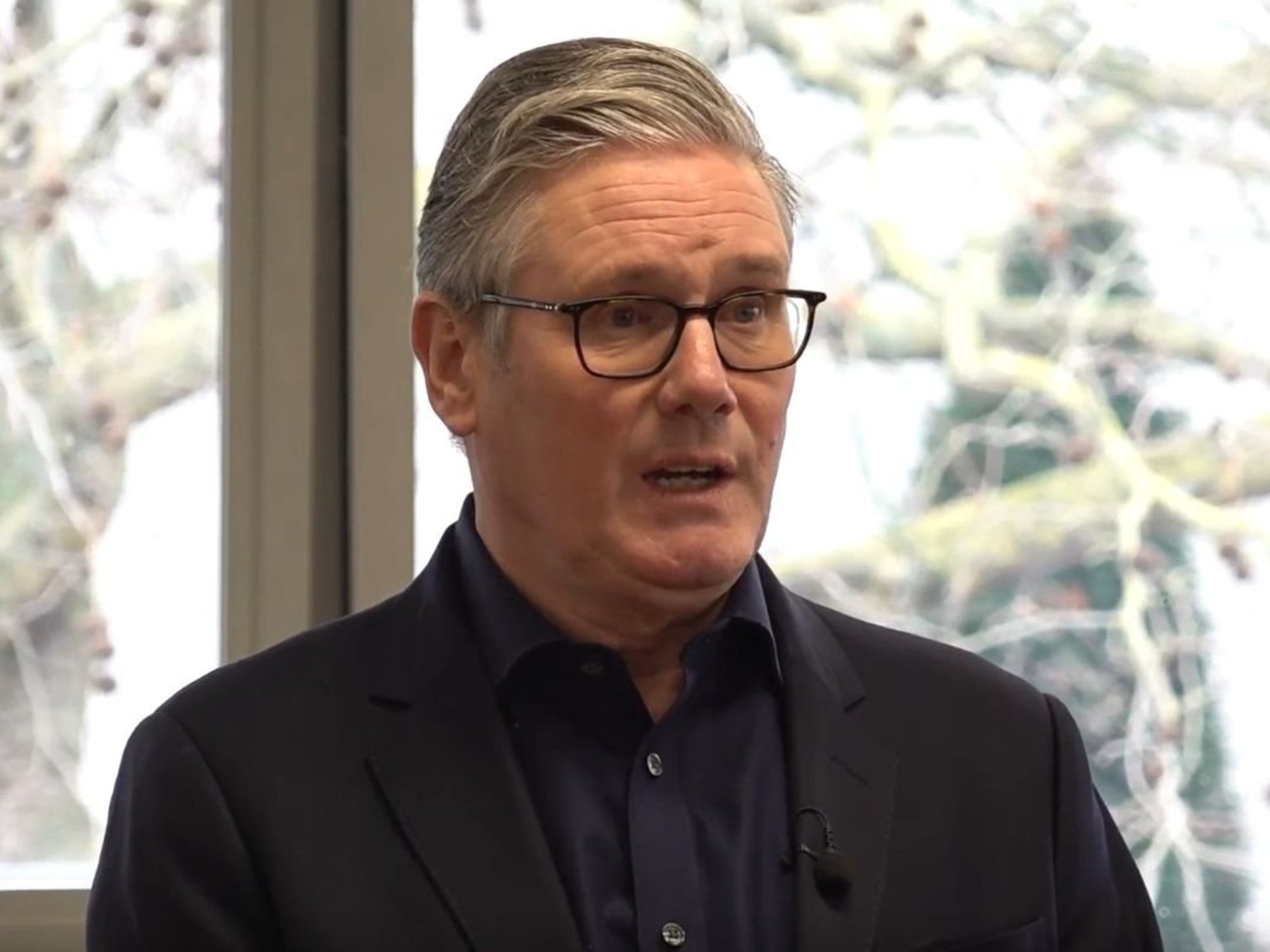How Reform UK is targeting 'betrayed' voters in Britain’s manufacturing heartlands as Nigel Farage seeks to reverse 'generational stasis'
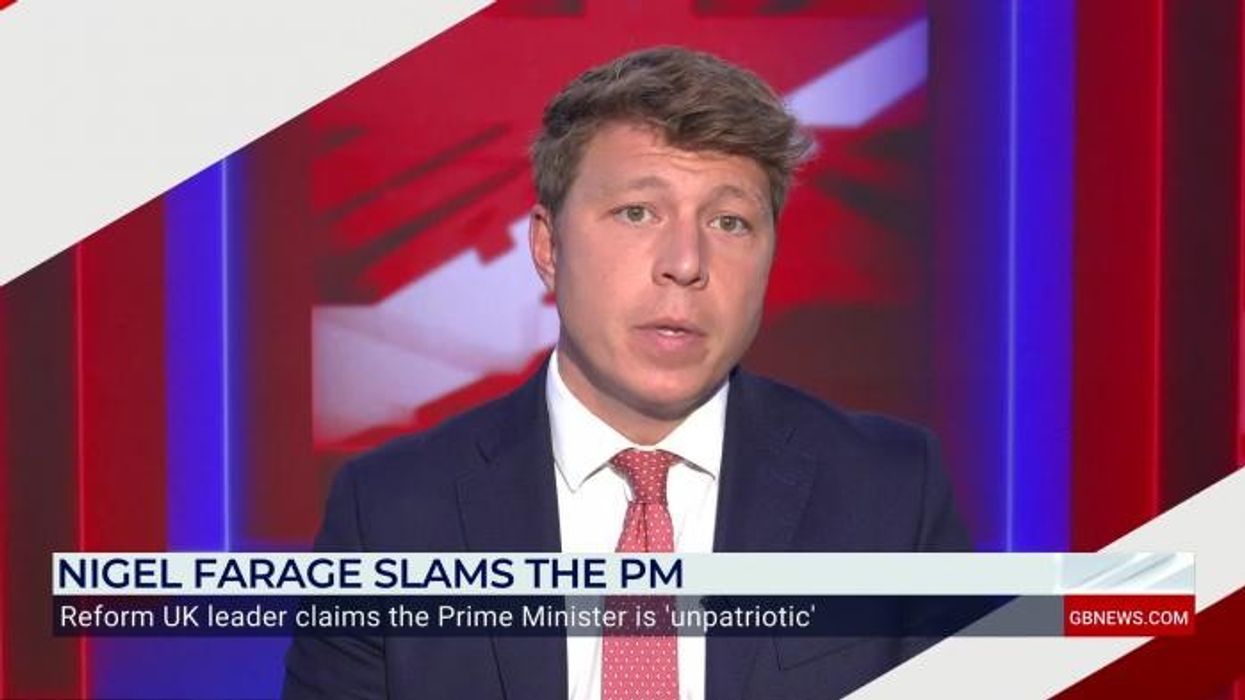
WATCH: Scarlett Maguire reveals key details from Merlin Strategy's bombshell Red Wall polling
|GB NEWS

A new Ipsos poll would see Nigel Farage easily win a large majority in Parliament
Don't Miss
Most Read
Trending on GB News
Nigel Farage is seeking to dismantle Sir Keir Starmer’s Red Wall as Reform UK targets voters in Britain’s industrial heartlands.
Voters in former mill towns, pit villages, workshops, steel towns, and shipyards could turn away from the Labour party in favour of Reform who are looking to sell themselves on a platform of re-industrialisation and renewal of British manufacturing.
Across northern England, the Midlands, Wales and Scotland, Reform are looking to make major gains, where, in recent years, some voters have felt let down by both Labour and Tory Governments.
Reform UK’s new head of Doge, Zia Yusuf, gave his take on why these areas in particular are turning away from Labour.
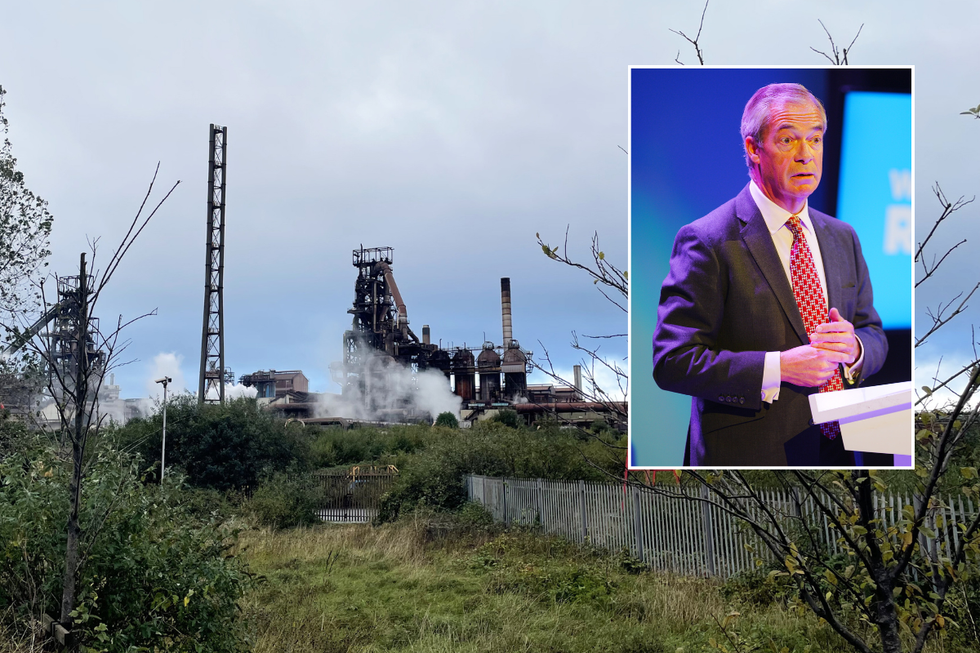
Reform is targeting the industrial heartlands
|PA
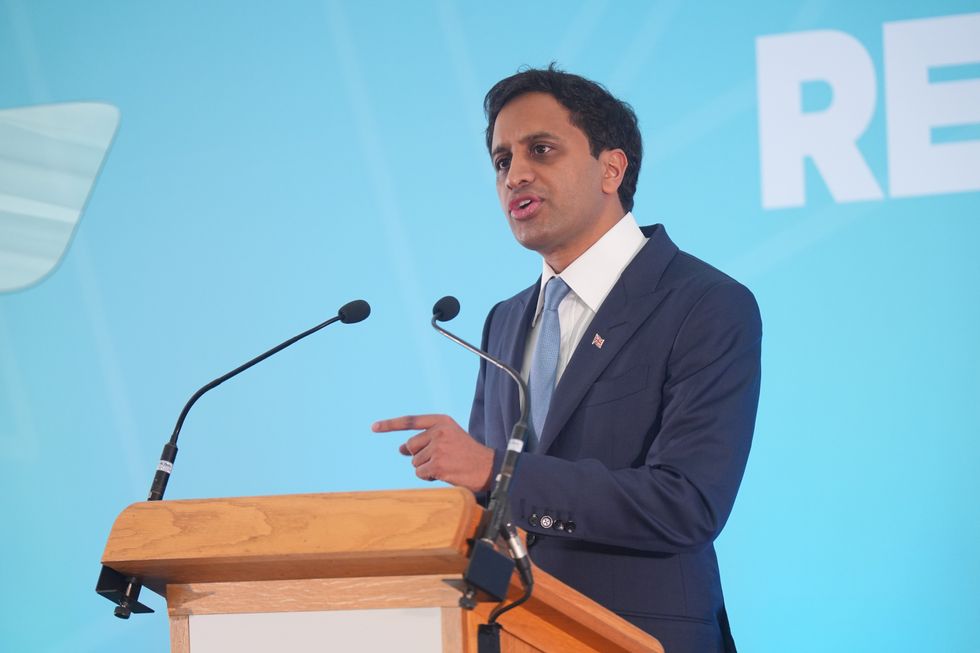
Zia Yusuf resigned then rejoined the party
| PA"If you go and speak to people who live in these communities, they just feel completely betrayed," Yusuf said.
"I spent a lot of time in Runcorn. A lot of this is driven basically by a political class that’s never really thought about the experience of people living in these areas.
"And Nigel speaks to those people. [As with] one of the things Trump is trying to do – whatever your views on the approach he is taking – I think we’ve got to manufacture more things here.
"We’ve got to have energy security. We can’t be in a crazy situation where we’re unable to produce primary steel."
LATEST DEVELOPMENTS
- Boris Johnson comeback bid scuppered as ex-PM fails to win over Reform UK voters
- Kemi Badenoch's 'unite the Right' snub backfires as Tory-Reform pact poised to flip 351 seats in shock Labour defeat
- Farage suffers blow as third of Reform voters now back another leader - but what does it mean at ballot box?
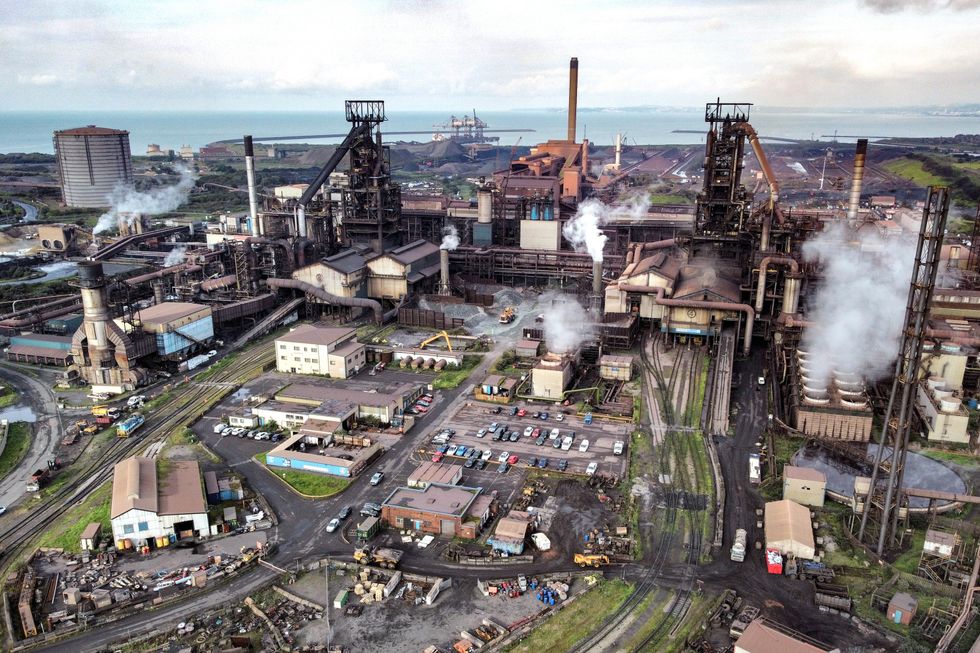
The Tata Steel factory in Port Talbot
| PAIt comes as Nigel Farage has pledged to reopen Port Talbot's steel blast furnaces if in power in Wales.
Port Talbot was once the largest steelmaking plant in the UK until the two blast furnaces were switched off in September 2024, which saw the loss of 2,800 jobs.
However, industry experts said that the two furnaces cannot be reused, with the structures containing hundreds of tonnes of solidified molten iron.
Addressing this, Farage said: "Once a blast furnace has been closed down, to actually reopen that particularly blast furnace is very very difficult. Nothing is impossible, but... it might be easier to build a new one."
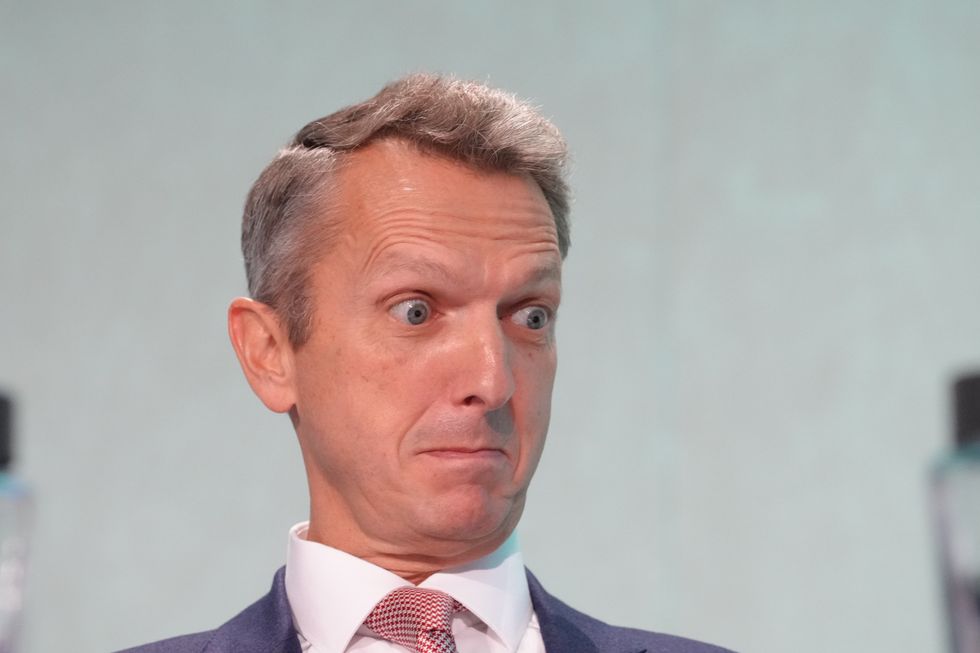
Former Bank of England chief economist Andy Haldane said places have been 'been left behind'
|PA
Farage may have to reckon with his previous comments about Margaret Thatcher, a figure who still casts a shadow over the places Reform are targeting. Under her policy of deindustrialisation in the 1980s, the UK transitioned to a more services-oriented economy.
Last year, speaking to Camilla Tominey, Farage described her as "a fighter who stood up and fought for issues, not because focus groups told her she should but because she believed it was the right direction to go in...Her level of resilience was quite extraordinary."
Under the Coalition Government the situation was exacerbated, with many community resources closed down across the country.
Last month, research by academics at the University of Staffordshire showed cuts since 1984 have disproportionately affected coalfield and deindustrialised areas, including reductions in welfare and benefit worth £32.6billion between 2010 and 2021.
Andy Haldane, the former Bank of England chief economist, told The Guardian: "Whichever lens you look at, economic, social, environmental, those places have been lost, and in that sense they have been left behind. And if not overlooked, then underinvested in, systematically, over at least a generation. If not two.
"The longer that has gone on and has turned into generational stasis, or a lack of social mobility, the greater people in those places have willingness to seek redemption elsewhere. Brexit was that, almost a decade ago. And Reform might be it now."
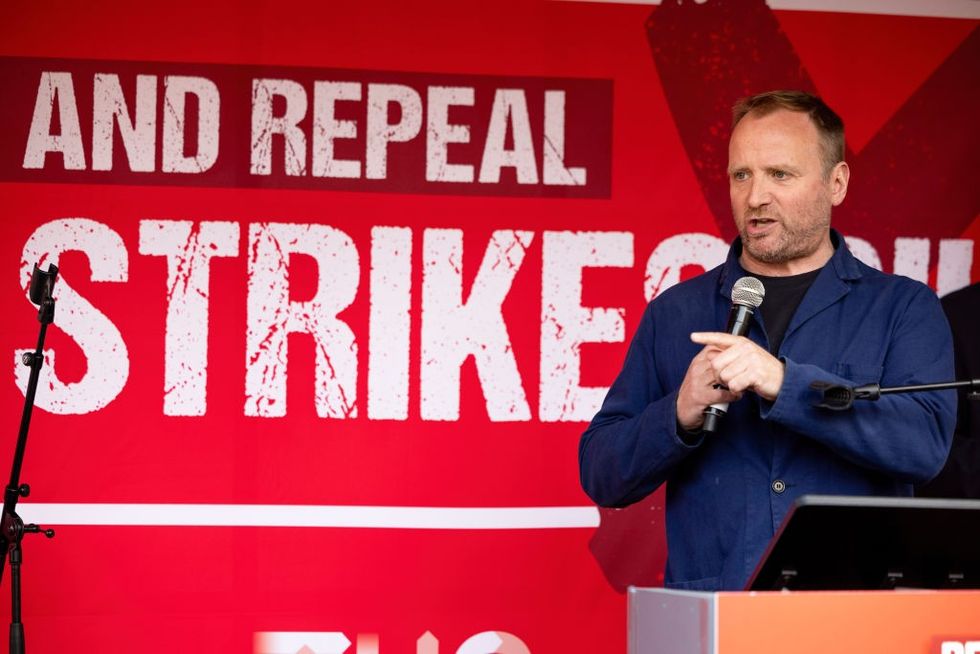
Gary Smith, the General Secretary of the GMB Union,
|GETTY
While Labour will be looking to hold onto those seats they won back in 2024, union chefs have warned the left risks fuelling support for Reform by leaving workers out of the debate around net zero and future plans for industry.
General secretary of the GMB union Gary Smith has called for an "honest debate" about Labour’s plans, adding: "Climate fundamentalism and right wing populism are two cheeks of the same backside.
"We need to have a programme about jobs and apprenticeships to bring back hope. Neoliberalism is dead and globalisation as we knew it is over.
"Working-class people aren’t voting for cheap TVs and training shoes. They want their jobs back."
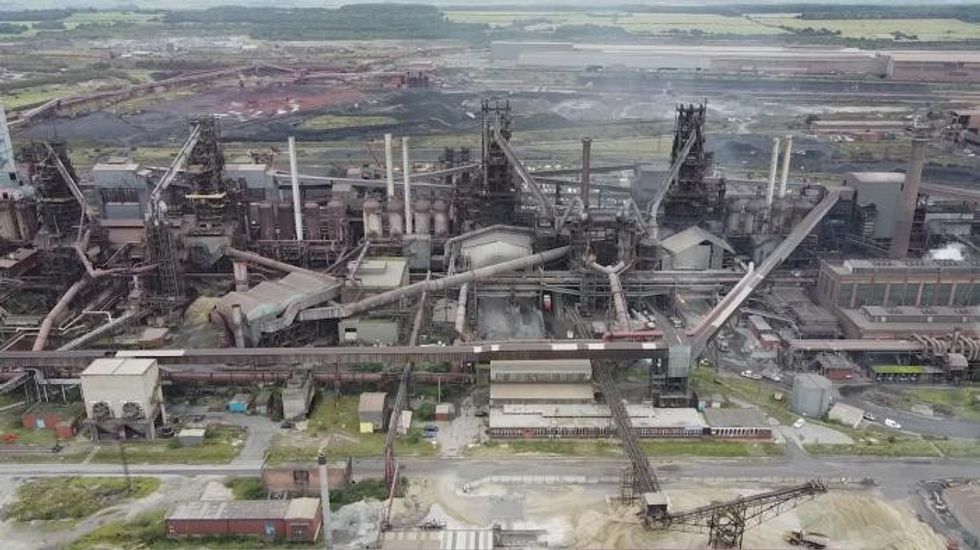
British Steel in Scunthorpe
| GB NEWSParty advisors are also looking at recent parliamentary petitions and data where there are hotspots suggesting dissatisfaction with the current Labour Government.
Hotspots from the “Call a General Election” online poll, launched within months of the one last July, and signed by three million people, included Essex and Lincolnshire, potential Reform strongholds.
"We’re looking at how active they are, where we can assign a high probability that it [a petition] is being driven by Reform or their organised groups via WhatsApp" one adviser to a Labour MP told The Guardian.
Many former "red wall" MPs are pushing Keir Starmer to adopt a tougher stance on immigration as a result.
 Nigel Farage has been handed a nine-point lead over Labour | GETTY
Nigel Farage has been handed a nine-point lead over Labour | GETTYRecent polling will be encouraging to those in Reform HQ.
Ipsos’ newly relaunched Political Monitor shows Reform UK on a 34 per cent vote share, the highest Ipsos has ever recorded for them, and nine points ahead of Labour.
The Conservatives received just 15 per cent, the lowest share Ipsos has ever recorded. Sir Ed Davey’s Liberal Democrats landed on 11 per cent, the Greens at nine per cent and others at six per cent.
Responding to the results, Nigel Farage wrote on X: "Reform UK achieves its highest ever opinion poll rating with 34 per cent.The British people now really believe that we can win the next election."
More From GB News






